Contents
One of the most common financial problems involves so-called “emotional spending”.
Most typically the phrase refers to people who use “retail therapy” to cheer themselves up, reward themselves or relieve boredom.
Generally speaking, emotional spending is a response to a negative feeling.
The problem with emotional spending is that it can lead to a negative cycle. You feel down, so you go shopping. Then you feel down because you went shopping. And so on.
Without care, people suffering from emotional spending problems can quickly find their shopping habit spiralling out of control, while they risk dipping into debt ever more.
So what can be done about emotional spending? How can you regain control of your finances and start making positive steps for your future?
Get To Know Yourself
The first step in controlling emotional spending is getting to know yourself. You don’t feel down, then instantly start to spend money. There is time between the two events; time in which you could halt the spending if only you saw it coming.
This is why keeping a journal can be so useful. Take the time to record what you do each day, and how it makes you feel. Also note any emotional spending.
Over time, this record can help you to deduce not only the people and situations that encourage you to spend, but also you should become better at “predicting” when these spending sprees are coming.
After all, the more prepared you are, the easier you should find it to control your spending.
Resolve Your Negative Emotions
If emotional spending occurs in response to negative emotions then an almost certain cure is ridding yourself of those emotions to begin with.
I know, I know – it’s easier said than done. But try consulting your journal to figure out if there are certain people, places or situations which are causing you angst – and increasing your emotional spending.
Once you’ve located the common themes, the next step is to try and eliminate them. Consider changing that awful job or seeing less of that depressing friend. Whatever it takes to stop yourself feeling like you need to spend money.
Find Displacement Activities
Displacement activities are those that are done instead of another habit, as a way to “displace” the bad habit with a neutral or a positive one.
As an example, I know someone who managed to quit smoking without nasty medications by using displacement activity. Any time they realized they wanted a cigarette they’d take a walk. Rain or shine. After a few minutes they’d find their cravings dropped away and they could return to normal life.
Soon enough you’ve broken the habit and even the displacement activity isn’t necessary.
So consider what you could do *instead* of shopping. Think about what activity will help to take your mind of spending money – and even the negative emotions that lead to such a situation.
Some form of exercise is often a great idea, though alternatives might include listening to music, chatting to one of your friends or simply meditating.
Try out some alternatives and when you find one that works for you stick to it. Every time you feel down, and realize you have an urge to spend, use your chosen displacement activity instead. You’ll find it far harder to buy yourself a new outfit when you’re jogging along the beach!
Consider Past Purchases
Here’s a question to ask yourself; how do you feel about the items you purchased recently?
Perhaps you genuinely love the items that you bought on a whim. More likely though, if you’re honest with yourself, is that the excitement has long since died off. You might have got a buzz when you first purchased them, but now they’re just like anything else.
The key here is to note that the buzz of shopping doesn’t last. Emotional spending might help you short term, but looking over the longer term it is far more problematic. The key is to realize this and make it a core value.
Try to burn that “empty” feeling into your mind, so that next time you think about spending unnecessary money you remember just how futile it really is.
Keep a Tight Budget
Budgeting isn’t easy for emotional spending. Many people would rather ignore their bank balance altogether and just keep blindly spending, irrespective of the outcome.
Clearly not only can this make emotional spending more likely, it can also somehow make it more “acceptable” psychologically – after all if you can’t see all that debt piling up then things can’t be so bad, right?
For this reason alone, if you’re struggling with emotional spending it can be a smart idea to start keeping a very careful budget. Track your bank balance and record purchases as you make them. Try to use one of the many budgeting apps to keep a vice-like grip on your finances.
Why? Quite simply because for those of us carefully budgeting our money and planning for the future, an unexpected shopping spree is a major disaster that can destroy literally weeks of hard work.
The more carefully you’re controlling and monitoring your money, the less likely you’ll be to “go crazy” and ruin all your hard work.
Reward Your Self-Discipline
So you’ve managed to avoid an emotional spending situation? Fantastic; hopefully you feel as good as you should. Now find some low-cost (or free) way to reward yourself. Not spending money needs become as rewarding as spending money.
Whether that’s taking a hot bubble-bath or having your favorite food for dinner do something to feel special. You deserve it.
Have you ever struggled with emotional spending? What have you done to control your spending? Please leave your thoughts in the comments section below…


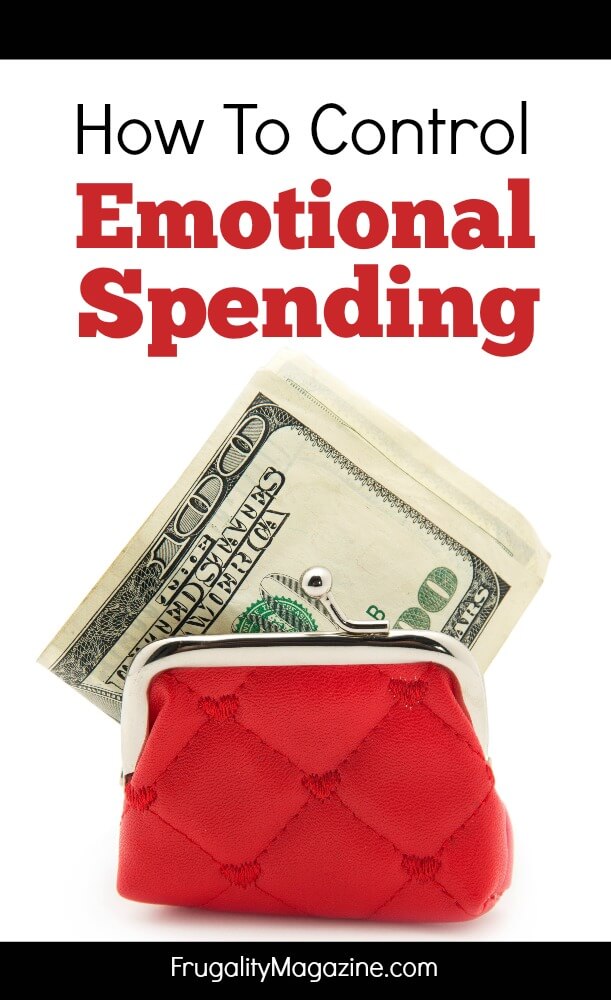

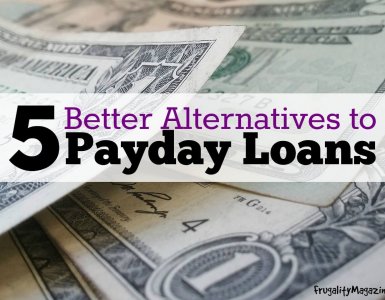

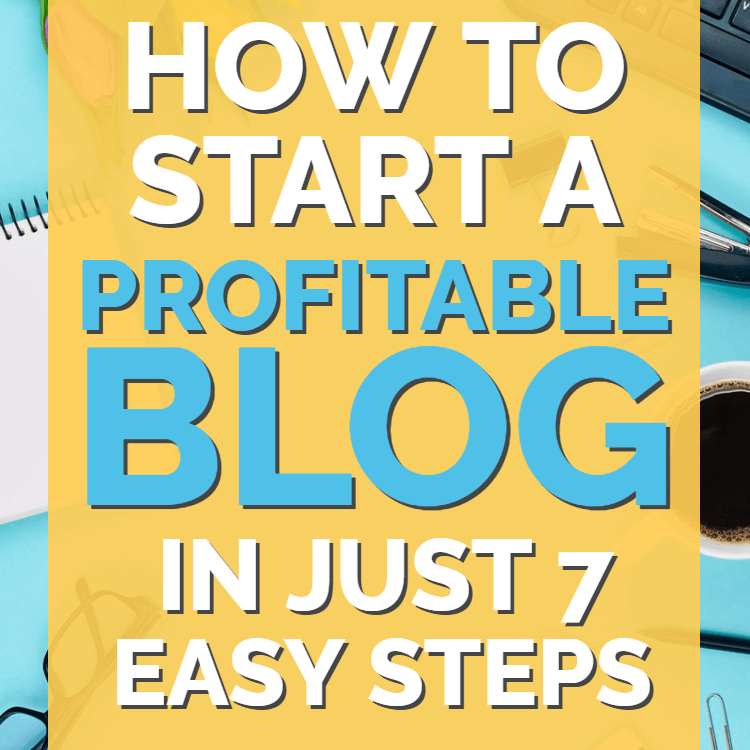

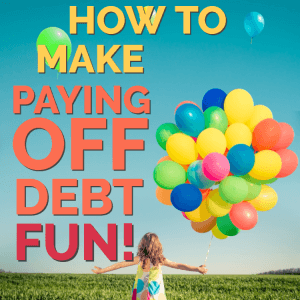
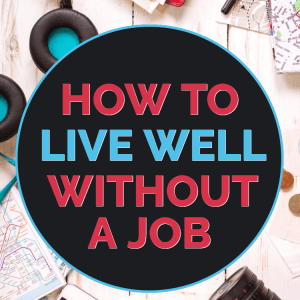
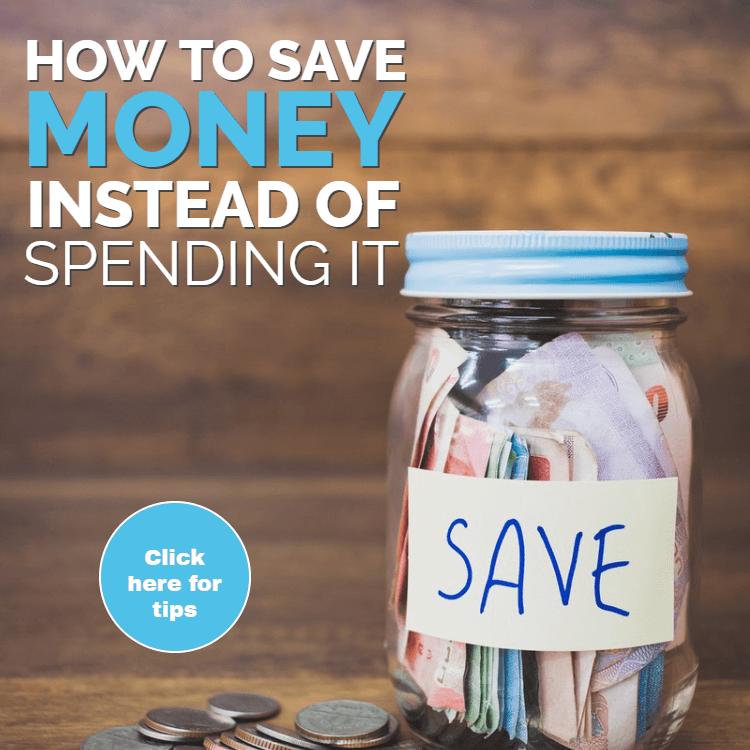
These are fantastic tips. Knowing yourself and your habits is an ongoing journey — just when you think you’ve figured yourself out, it turns out there’s more to learn.
We’d add to this coping with your emotions. Beyond resolving them (possible sometimes, but not always) and displacement (for when you can’t resolve the emotions), learning better coping strategies is a hugely helpful approach, and can help resolve or prevent the negative emotions over time. We’re thinking about yoga, meditation, maybe therapy, caring for others… activities that give each of us healthy perspective about what’s really important.